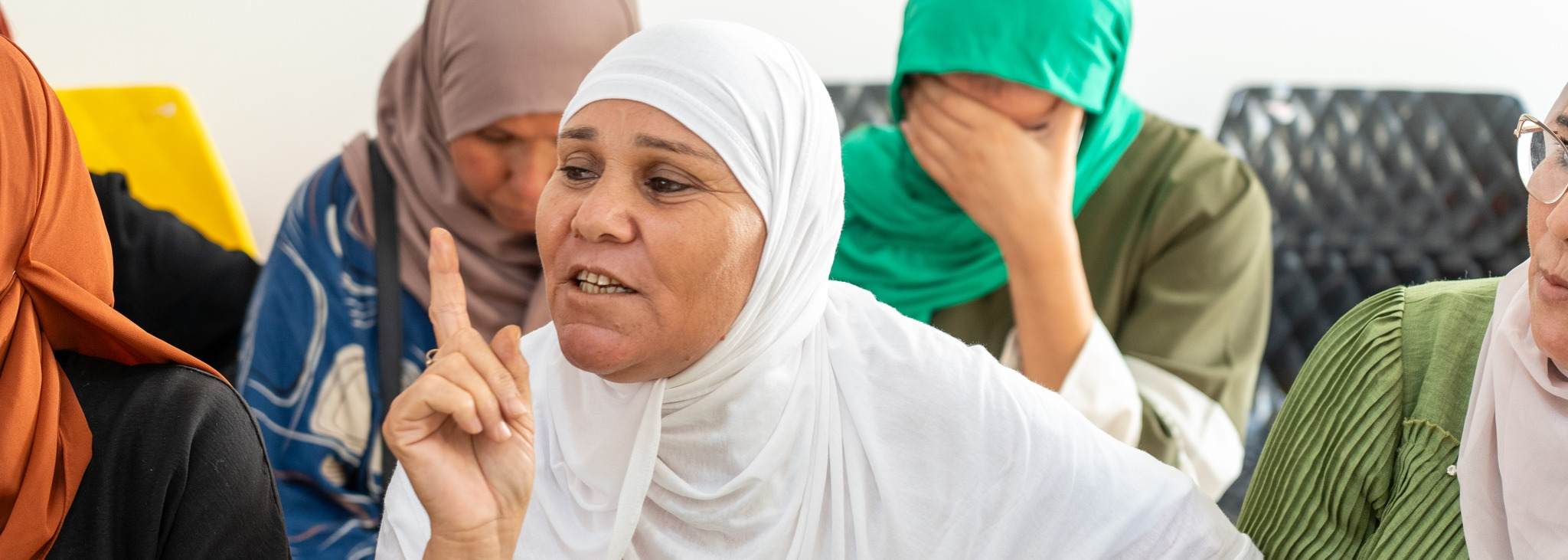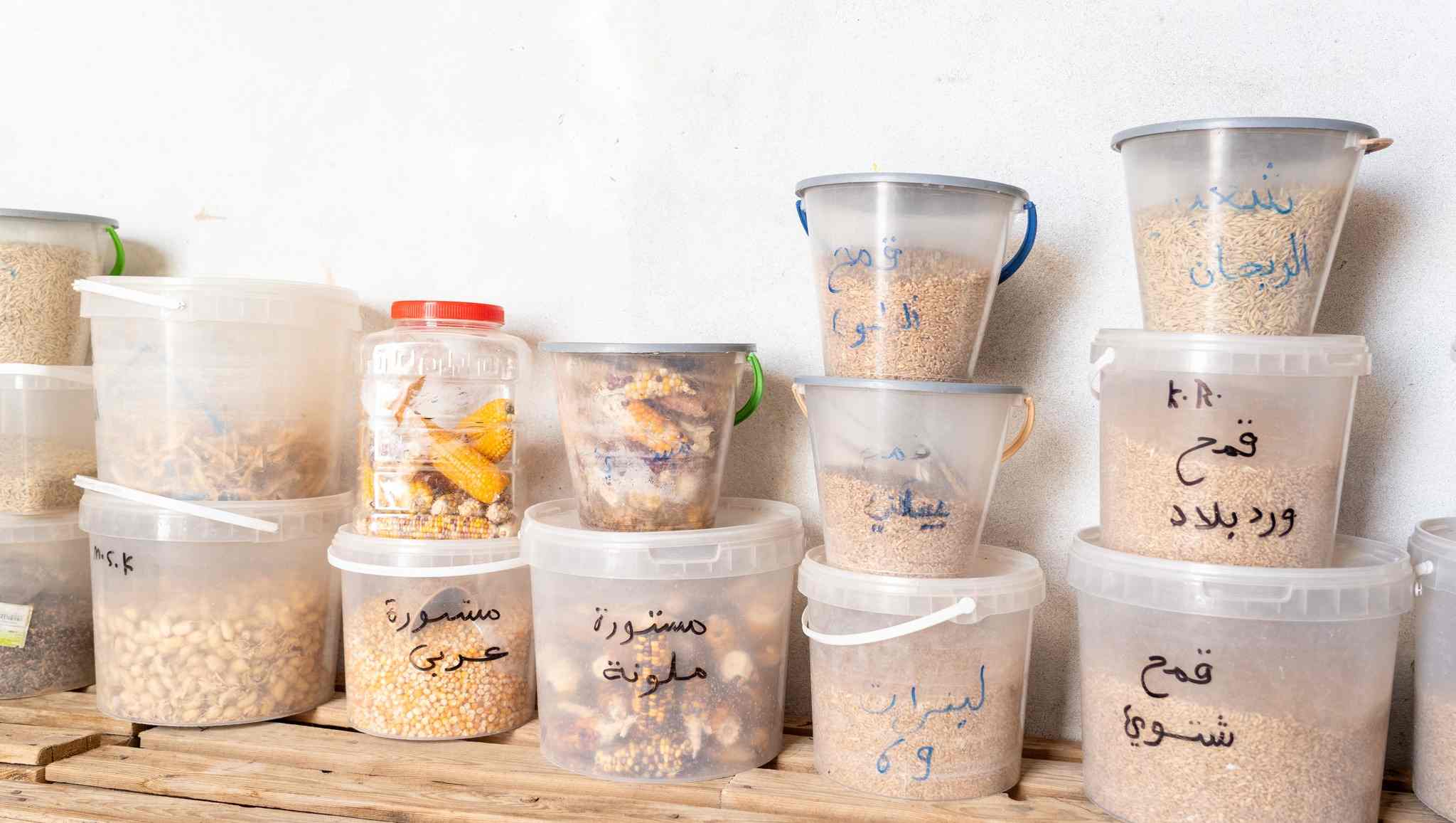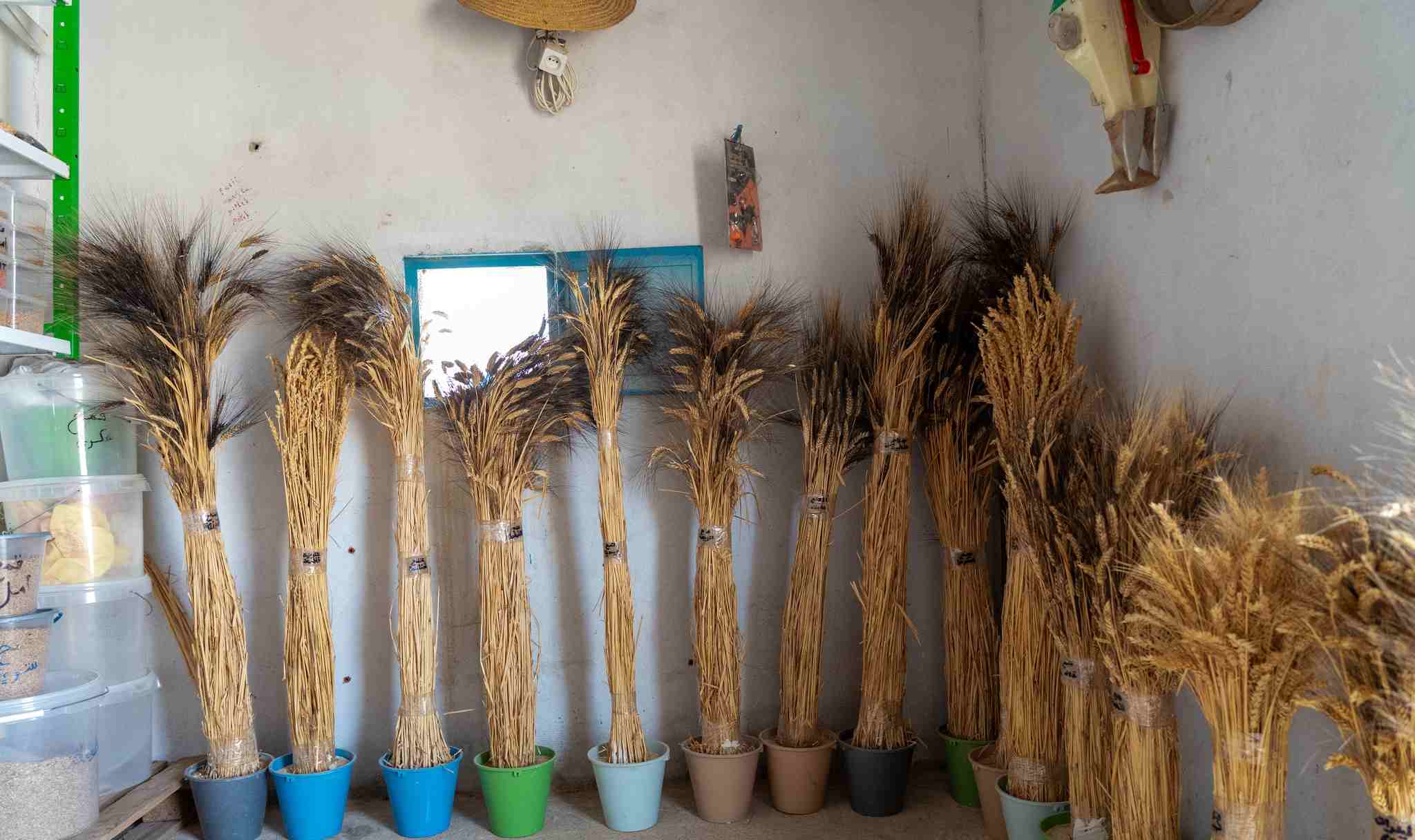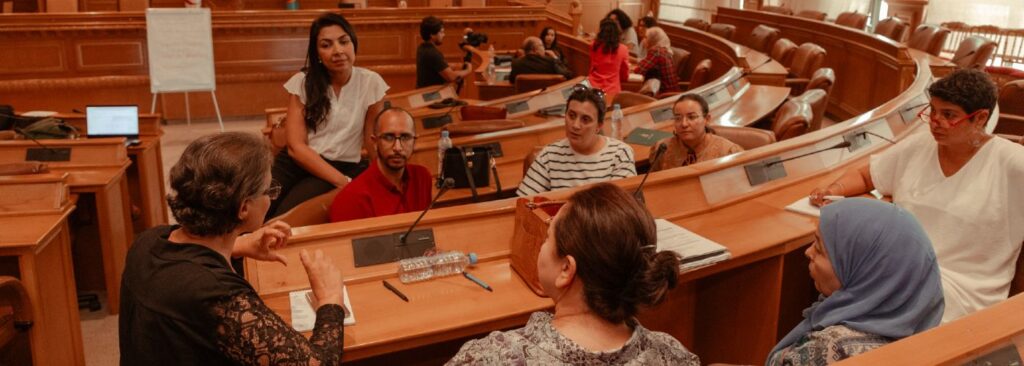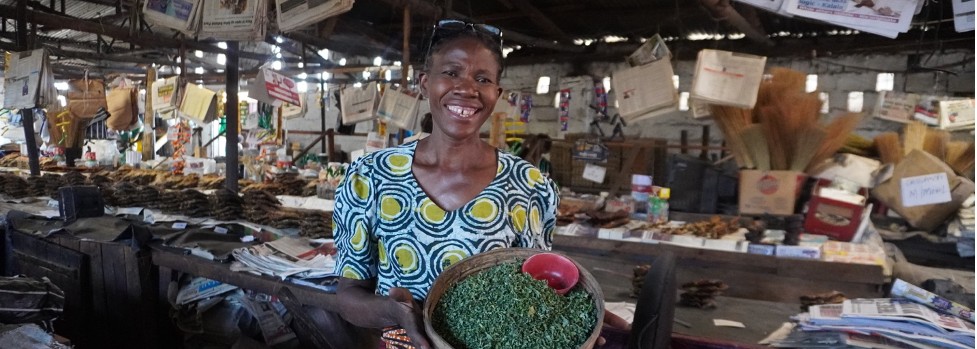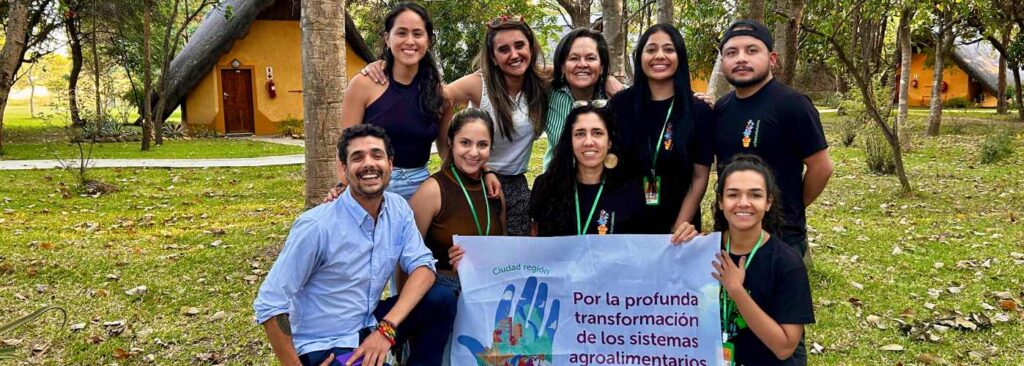In the arid landscapes of southern Tunisia, farmers are waging a largely overlooked battle with rising temperatures, soil salinization, and increasing water scarcity. But they are adapting their practices to withstand the impacts of climate change. Working with local and international research centers in places like Sfax and Borj Cedria, they seek solutions to these mounting challenges.
Their commitment to preserving local seeds and cultivating local varieties of tomatoes, wheat, and other crops remains vital to their livelihoods. Here are some of the ups and downs they face, as told to us by farmers supported by partners in our Voices for Just Climate Action program.
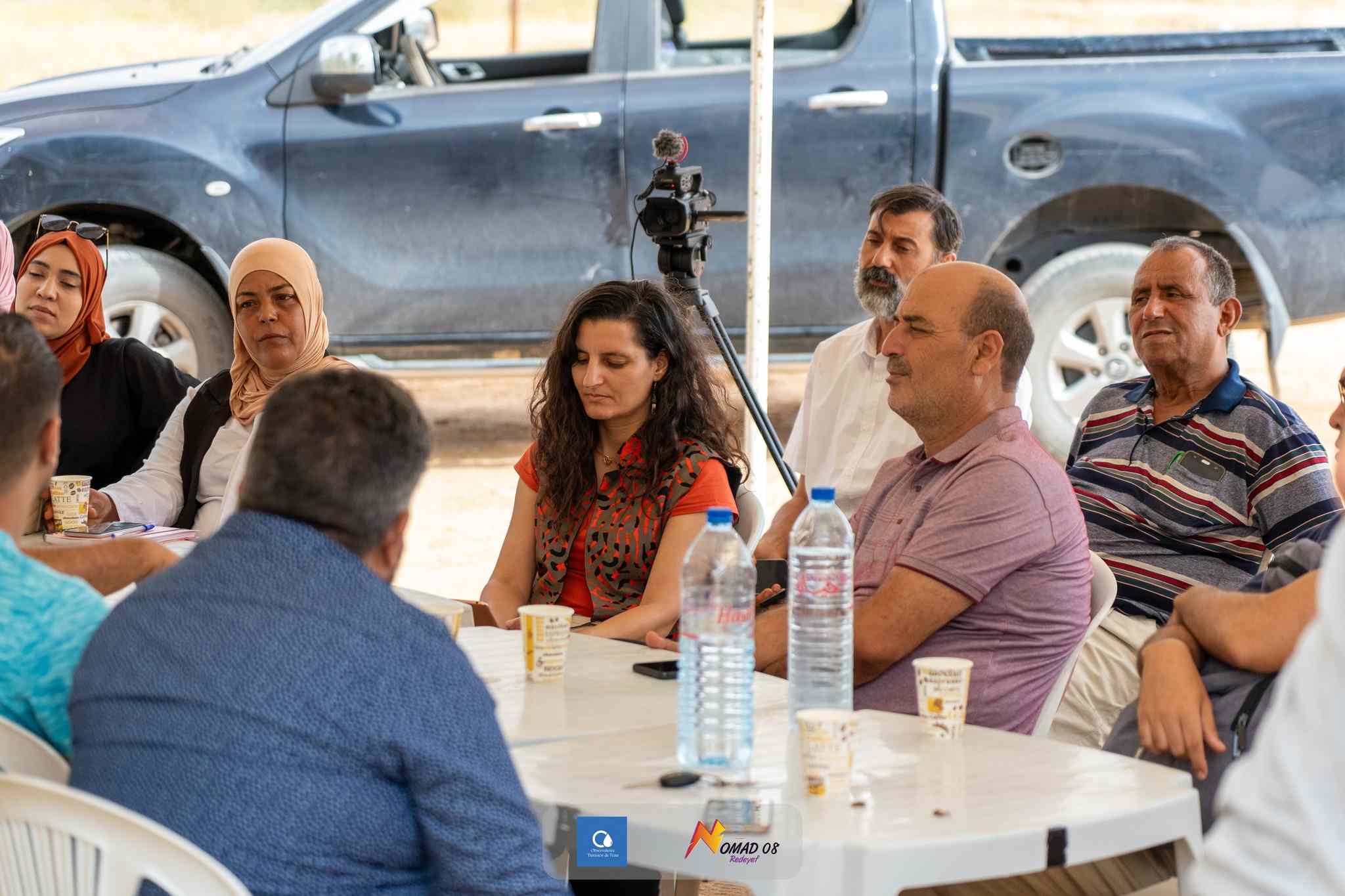
A flavorful and pest-resistant Tunisian tomato variety
Mr. Bahri, a local farmer from Sfax, is a teacher who practices farming, continuing the tradition of his parents. Passionate about preserving local seeds, he has spent years experimenting with them to maintain his farm. “For a long time, I struggled to grow tomatoes without pesticides or chemical fertilizers, but finally my efforts paid off when I managed to produce a good quantity of a tasty Tunisian tomato variety,” he said.
“One of the biggest challenges was fighting pests that eat tomatoes, like the Tuta absoluta moth,” he continued. “It’s made many farmers turn to fertilizers, including illegal ones, or even stop growing tomatoes altogether.”
However, the resilience of local tomato varieties offers hope. These native species are more resistant to pests, require fewer pesticides, and are more nutritious than hybrids.
We’re calling for local seeds – they consume less water and help maintain a balanced local food system.
Poor marketing strategies and access form a hurdle
Yet, Mr Bahri says the greatest challenge is not producing local tomatoes but marketing and selling them. Despite their good flavor and nutritional value, local tomatoes are fragile and lack proper promotion. “Our inability to tap into larger markets leads to significant losses. I’d say nearly 50 percent of our produce is wasted because of poor marketing strategies. Social media has raised awareness, but that’s not enough.”
So there is a growing need for local markets and processing facilities to reduce losses and add value to the produce.
Reducing wastage can boost farmers’ incomes
Online and offline markets can provide solutions. One example is Soug Errahba, an initiative led by La Ruche, a VCA partner helping farmers and artisans in the oasis to sell their products.
Another avenue is making other products from fresh tomatoes. In Tunisia it’s quite easy to use the country’s climate to produce sun-dried tomatoes. And making fresh sauces is something women artisans in other regions are already doing. This approach can both reduce wastage and promote a more social economy.
Indigenous seeds are at the root of food security
In Tamaghza, a farmer’s cooperative is working with research centers to develop locally-produced cover crops that increase crop resilience to climate change. “We focus on using endemic and Indigenous seeds, preserving our traditional farming knowledge, and cooperating with each other,” one representative said. Another told us about initiatives like the annual seed festival where 260 farmers exchange seeds and knowledge. “We’ve preserved over 67 varieties of cereals thanks to this event, and that’s essential for Tamaghza’s food security,” another added.
Nomad 08, a VCA partner primarily focused on water justice and food-related issues, is supporting interesting collaborations from Djerba island in the east to Ain Karma, near the Algerian border. These efforts have successfully produced wheat from Indigenous and local seeds.
Wheat farming in the desert
And finally we turn to Gafsa in the desert, where previously viable wheat farms are grappling with dwindling water supplies and drastically reduced yields due to climate change. Many farmers have resorted to illegally sourcing water, laying bare the urgent need for more government support and subsidies to keep agriculture viable in the region.
We asked some of them to tell us how they are responding. “We’ve started forming cooperatives and raising awareness about sustainable farming practices and health. We’re also calling for local seeds – they consume less water and help maintain a balanced local food system. And we’ve contacted engineers to see what new solutions they can think of,” is what many of them say.
Once again, marketing hurdles are in the way
However, like other farmers in southern Tunisia, they, too, face significant hurdles in marketing their products. Initiatives like forming associations and participating in national farming exhibitions have been positive steps, but more government support is needed to ensure these efforts result in sustainable livelihoods.
Farmers know what to do, but need support
We see that farmers in southern Tunisia are doing their part. By promoting local seeds and sustainable farming methods, they are not only preserving their traditions but also building a future where agriculture thrives in harmony with the environment.
The next step is clear: to bolster these efforts through improved marketing strategies, government support, and the creation of local markets that can sustain the vibrant farming communities of southern Tunisia.

